Reviews
Dai-Nipponjin
Hitoshi Matsumoto
Japan, 2007
Credits
Review by Rumsey Taylor
Posted on 07 May 2008
Source 35mm Print
Categories The 2008 Independent Film Festival of Boston
We first meet Masaru on a commuter bus. He is soft-spoken and unimpassioned, speaking with neither elaborateness nor gestures, a reliable, if unengaging, narrator of his own life. Running out of questions, the interviewer (also cameraman) asks about his umbrella, which Masaru carries around even when there’s no threat of rain. He’s enormously fond of the device—”[It] only expands and gets big when you want it to,” he says with a sudden hint of enthusiasm.
In the next scene, we find him at his home, a quiet, dark place filled with books and old photographs. He’s eating with the very same nonchalance he had on the bus. His cat will jump on the table and nibble at his bowl, and he looks at his pet for several seconds before gently removing him. The gesture isn’t disciplining enough, and the cat immediately returns. Masaru comments on his meal, expressing a rare, but now familiar burst of enthusiasm for dehydrated seaweed. “It only expands and gets big when you want it to,” he says.
You would never know it from talking to him, but Masaru is actually a superhero, and he comes from a family of superheroes deemed “Dai Nipponjin”, or “Big Man Japan.” They’re capable, via moderated electrocution, of growing to enormous size and contending with a variety of other super-sized personalities that invade Japan, each of whom is more a nuisance than a threat. His grandfather is seen in old newsreel footage, his stature a mobile signature in a city’s iconic horizon. These heroes of the past are regarded affectionately. Masaru, by contrast, hasn’t the charisma of his ancestors. (He also transforms differently from them, his haircut sprouting upward almost identically to Henry Spencer’s in Eraserhead.) If his television program is any indication (it airs only in the very early morning), he’s more like a sitcom that is well past its prime, recycling the same jokes in perpetuating tedium.
Of course, this is all amazing to us, and Big Man Japan is interspersed with scenes of giant Masaru’s battles with a plethora of bizarre monsters: the Strangling monster, the Jumping monster, the Evil Stare monster, the Stink monster, or the Child monster. These battles aren’t epic or disastrous as they are in a Godzilla movie, rather, they’re hilarious for their brazen surrealism. The Strangling monster, for example, is a gangly thing, its arms enclosed in an extendable loop, and it’s face disturbingly human. It has the most enormous comb-over you’ve ever seen—just after forcibly embracing a concrete building and yanking it out of its foundation, it’ll toss its head laterally and with great effort to arrange its hair in the desired fashion.
As he engages these foes in battle, Masaru is decorated in sponsor logos, and he’s told by a publicist to keep his arms unfolded, for example, so the new one on his chest will be properly seen. The safety of Japan’s populace is of equal, if not lesser, priority to retaining sponsorship. The entirety of Big Man Japan is humorous in this manner, which is to say oddly. It’s funny, but not cacklingly or ecstatically so, a vision of comprehensive absurdity. This absurdity is befitted by the film’s subtitled exhibition, I think, which renders the enterprise even stranger. Curiously, and despite all the mayhem that’s wrought before, Big Man Japan concludes with a painfully hysterical live-action climax that cannot be justly described.
More The 2008 Independent Film Festival of Boston
-

Crawford
2008 -

Vexille
2007 -

American Teen
2008 -

Mister Lonely
2007 -

Intimidad
2008 -
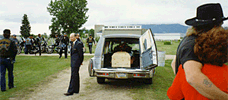
Meadowlark
2008 -

Second Skin
2008 -

Transsiberian
2008 -

The Linguists
2008 -

Big Man Japan
2007 -

At the Death House Door
2008 -
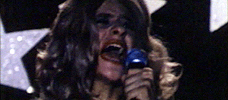
The Beaver Trilogy
2000 -
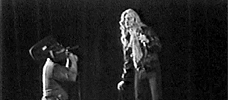
The Beaver Trilogy
2000 -

Nerdcore Rising
2008 -
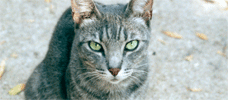
Goliath
2008 -

The Tracey Fragments
2007 -

Saviours
2008 -

Medicine for Melancholy
2008 -

Severed Ways
2007 -

Not Your Typical Bigfoot Movie
2008 -

Not Your Typical Bigfoot Movie
2008 -
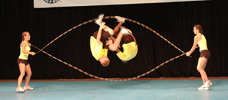
Jump!
2007 -
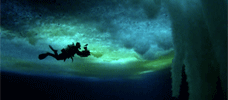
Encounters at the End of the World
2007
We don’t do comments anymore, but you may contact us here or find us on Twitter or Facebook.



